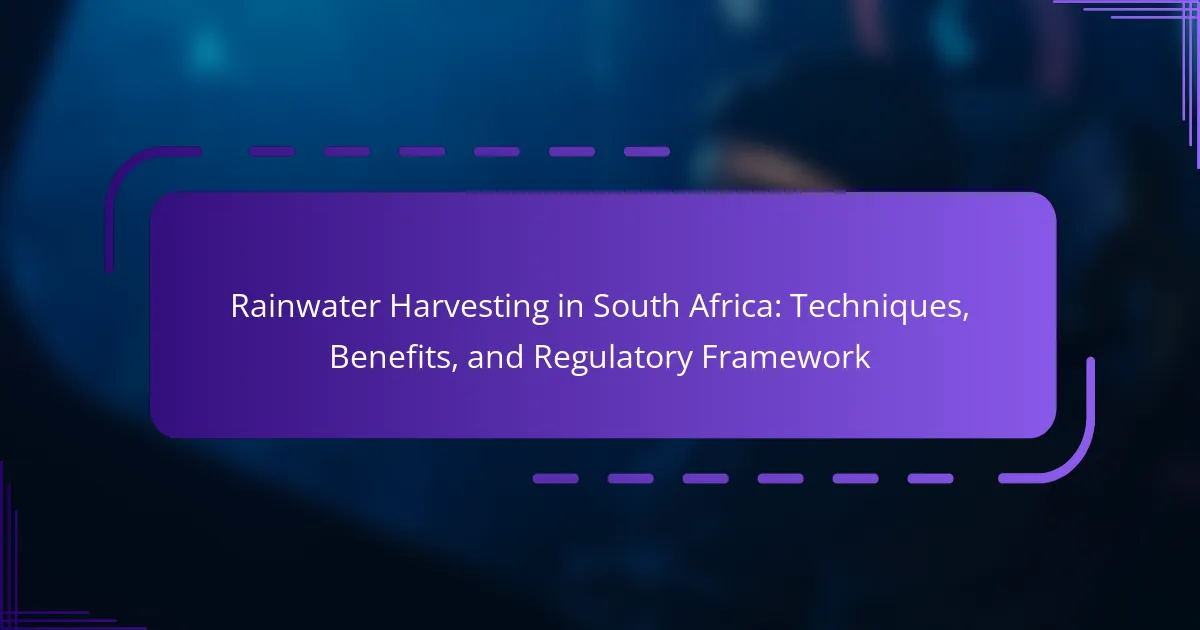Rainwater harvesting is the process of collecting and storing rainwater for future use, a practice increasingly vital in South Africa due to water scarcity. This method involves capturing rainwater from rooftops and surfaces, directing it into storage tanks for various applications, including irrigation, toilet flushing, and, after treatment, drinking. The benefits of rainwater harvesting include […]
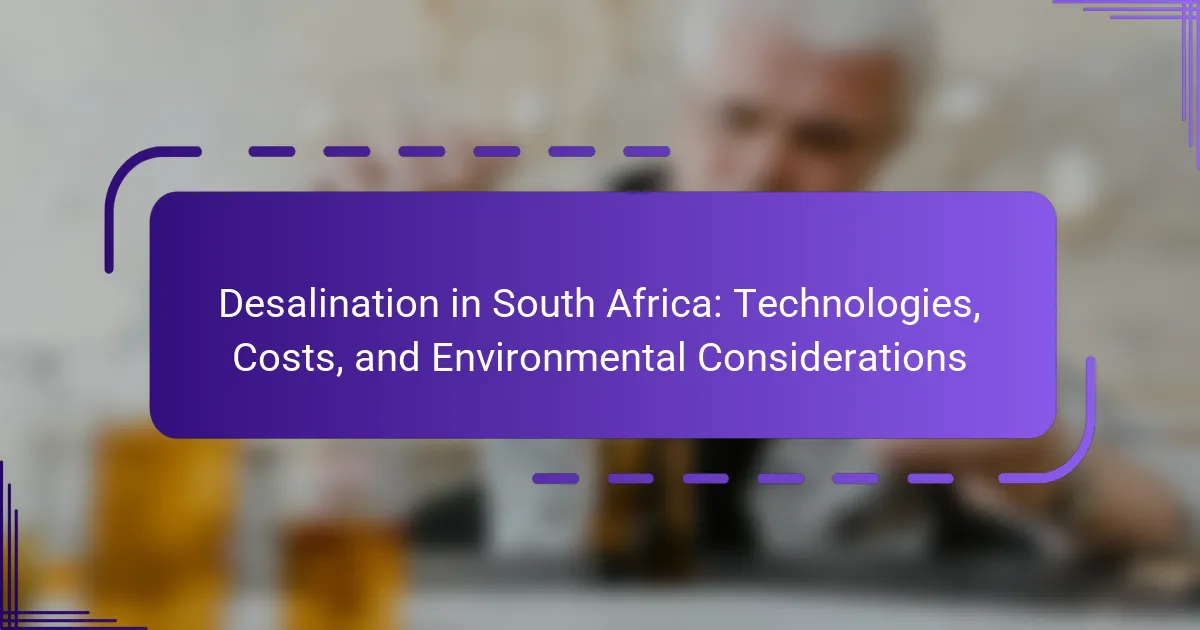
Desalination in South Africa: Technologies, Costs, and Environmental Considerations
Desalination is the process of extracting salt and impurities from seawater to produce fresh water, which is increasingly vital for South Africa facing significant water scarcity issues. The country has experienced severe droughts and limited freshwater resources, making desalination a critical alternative water supply, particularly in coastal regions. While desalination can support agricultural and industrial […]
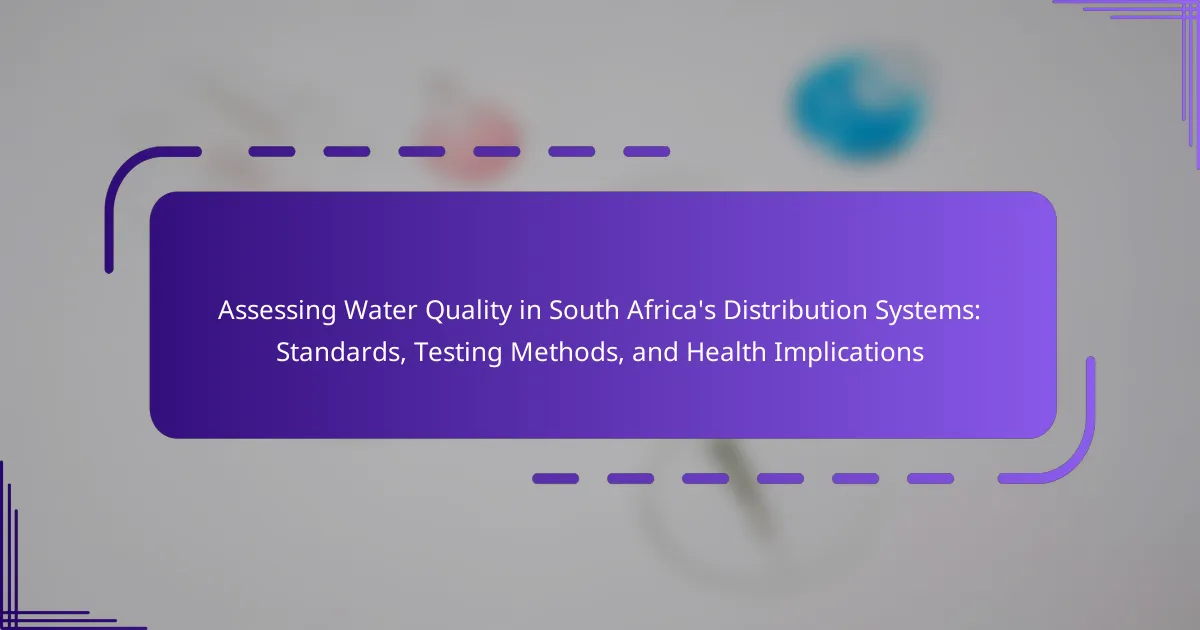
Assessing Water Quality in South Africa’s Distribution Systems: Standards, Testing Methods, and Health Implications
Water Quality Assessment in South Africa’s Distribution Systems involves the systematic evaluation of water quality to ensure it meets safety standards for human consumption. This process includes testing for chemical composition, microbial contamination, and physical characteristics, guided by the National Water Act and Drinking Water Quality Guidelines. Regular monitoring is essential to identify health risks […]
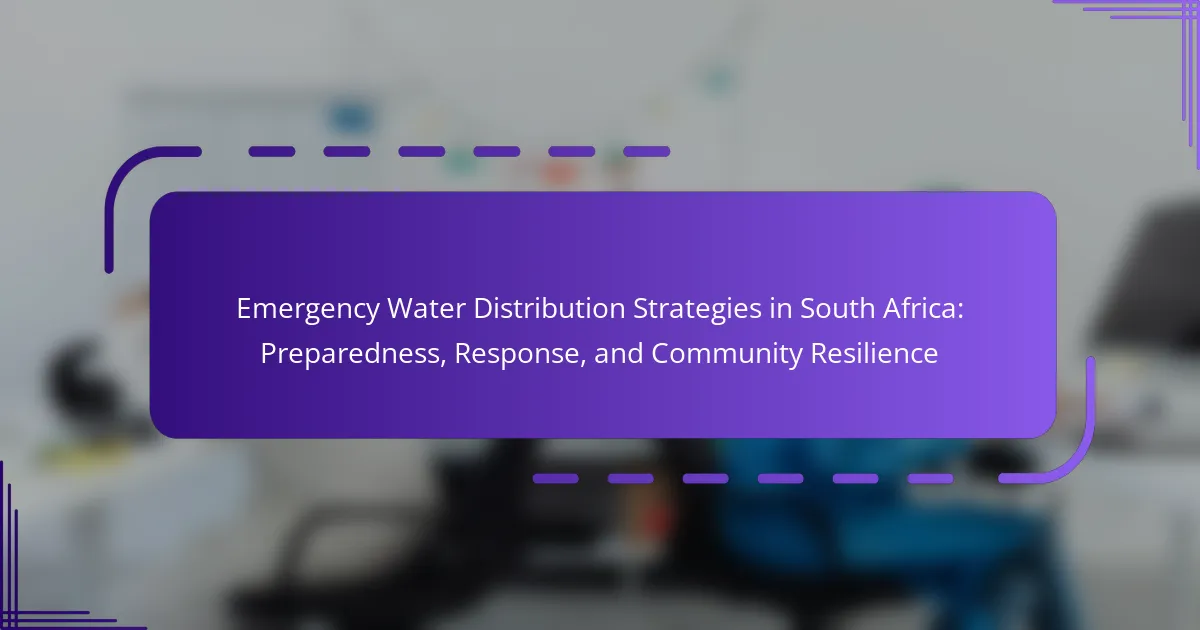
Emergency Water Distribution Strategies in South Africa: Preparedness, Response, and Community Resilience
Emergency water distribution strategies in South Africa are critical for addressing water shortages during crises, such as droughts or infrastructure failures. Key components of these strategies include the use of water tankers, community water points, and emergency supply systems, which are designed to ensure immediate access to potable water. The response framework emphasizes the assessment […]
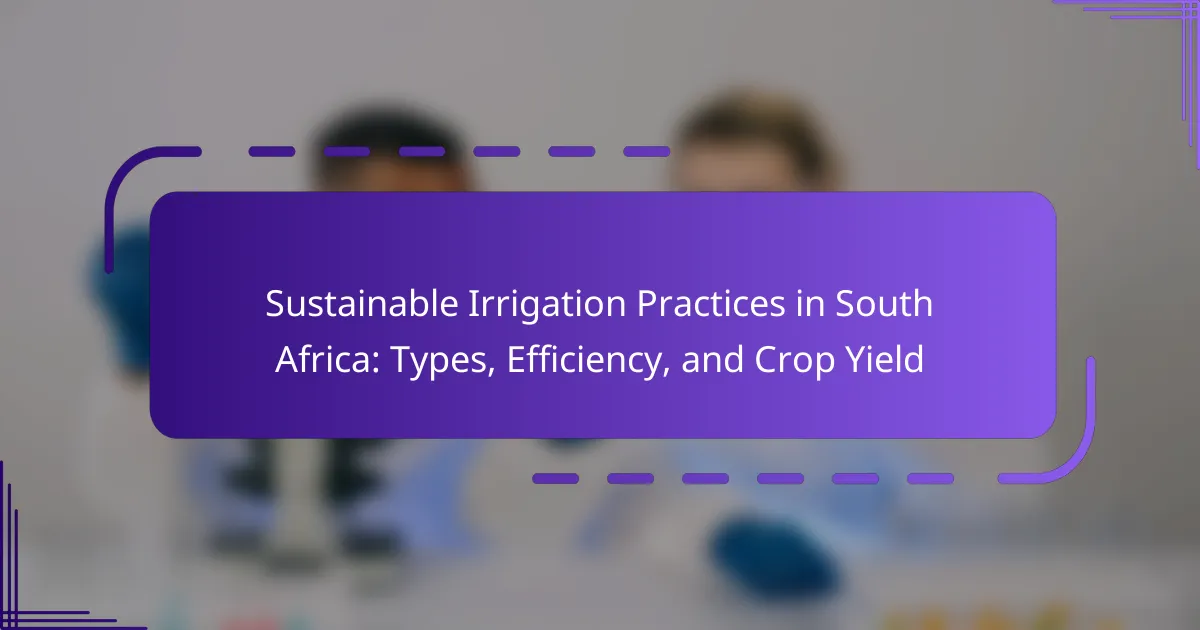
Sustainable Irrigation Practices in South Africa: Types, Efficiency, and Crop Yield
Sustainable irrigation practices in South Africa focus on methods such as drip irrigation, rainwater harvesting, and soil moisture sensors to enhance agricultural efficiency. These practices significantly improve water use efficiency, with studies indicating potential reductions in water usage by up to 60% and increases in crop yields by 20-30%. The integration of precision irrigation technologies […]
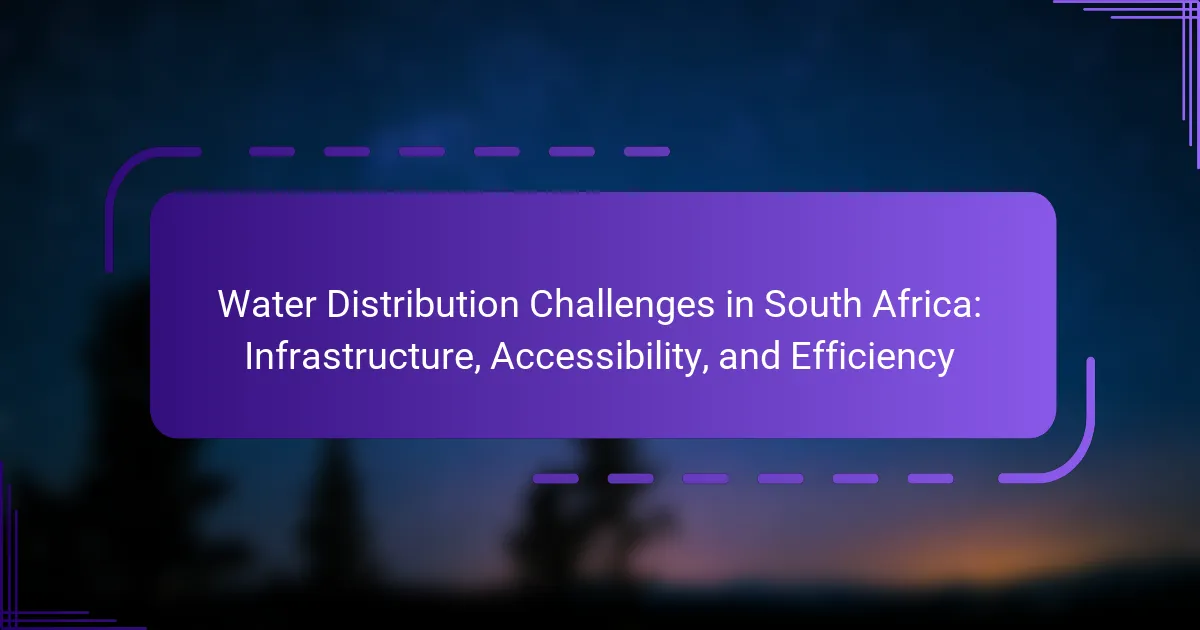
Water Distribution Challenges in South Africa: Infrastructure, Accessibility, and Efficiency
Water distribution challenges in South Africa encompass aging infrastructure, unequal access, and water scarcity. The aging infrastructure results in significant water loss, with up to 37% of supply wasted due to leaks. Many rural areas experience unequal access, leaving approximately 14% of South Africans without safe drinking water. Water scarcity is intensified by climate change […]
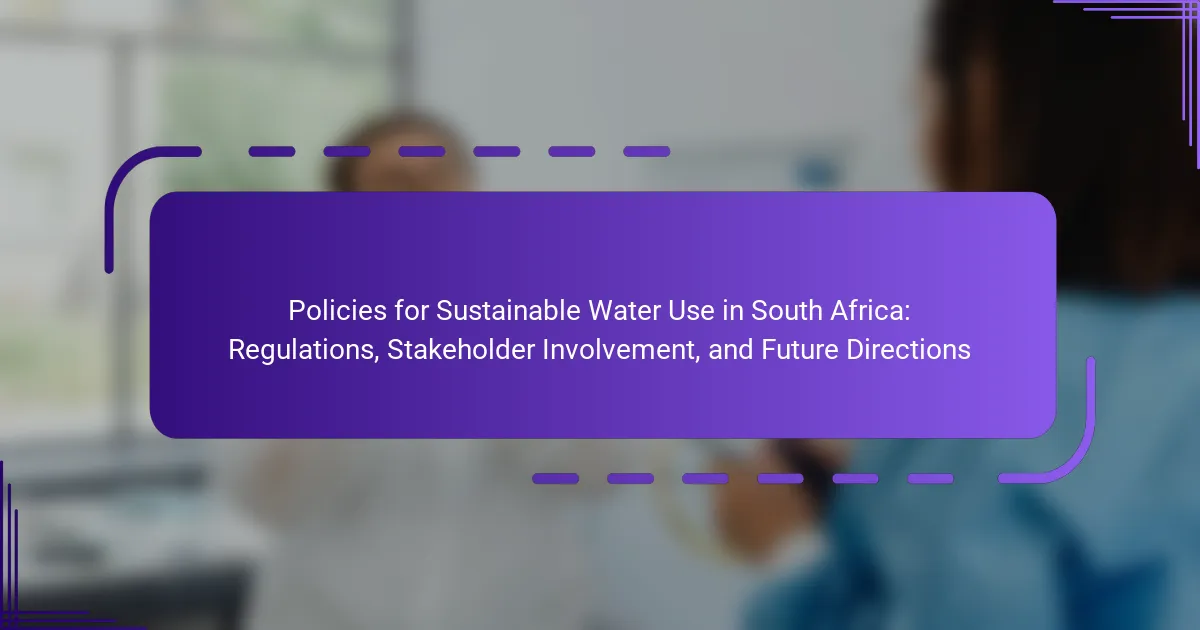
Policies for Sustainable Water Use in South Africa: Regulations, Stakeholder Involvement, and Future Directions
The primary entity of this article is the policies for sustainable water use in South Africa, specifically focusing on the National Water Act of 1998 and the National Water Resource Strategy. These policies are designed to promote equitable access to water, protect water quality, and ensure sustainable management of water resources. The article outlines the […]
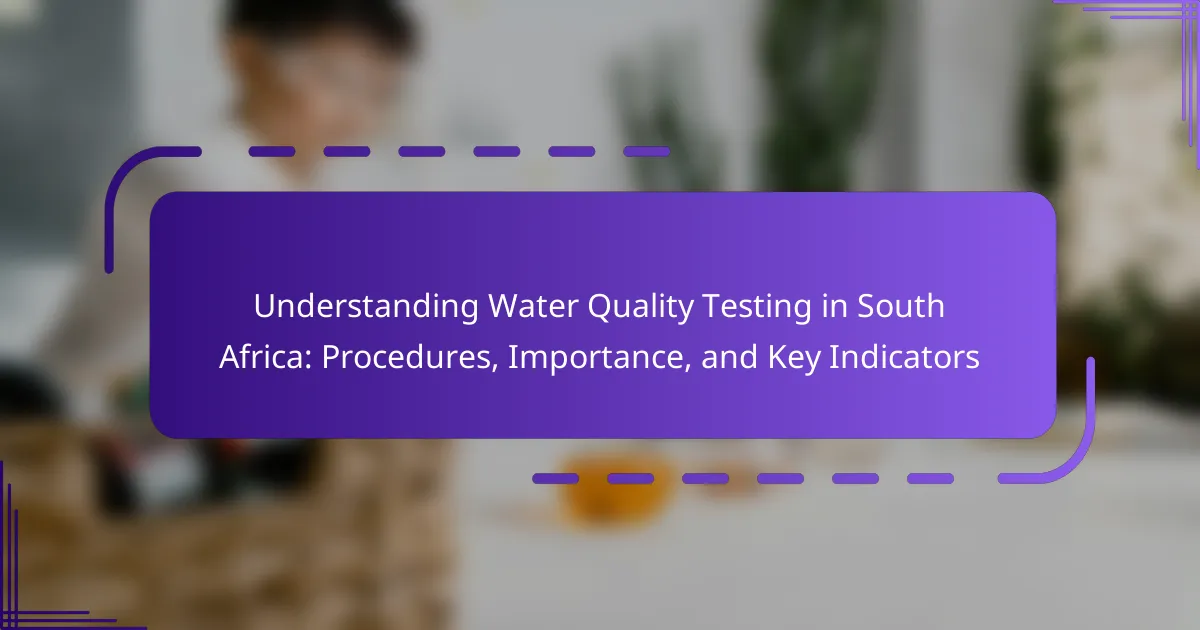
Understanding Water Quality Testing in South Africa: Procedures, Importance, and Key Indicators
Water quality testing in South Africa involves analyzing water to evaluate its safety and suitability for various uses, focusing on parameters such as chemical composition, biological contaminants, and physical properties. This process is crucial due to the country’s diverse water sources and varying pollution levels. The Department of Water and Sanitation oversees testing protocols to […]
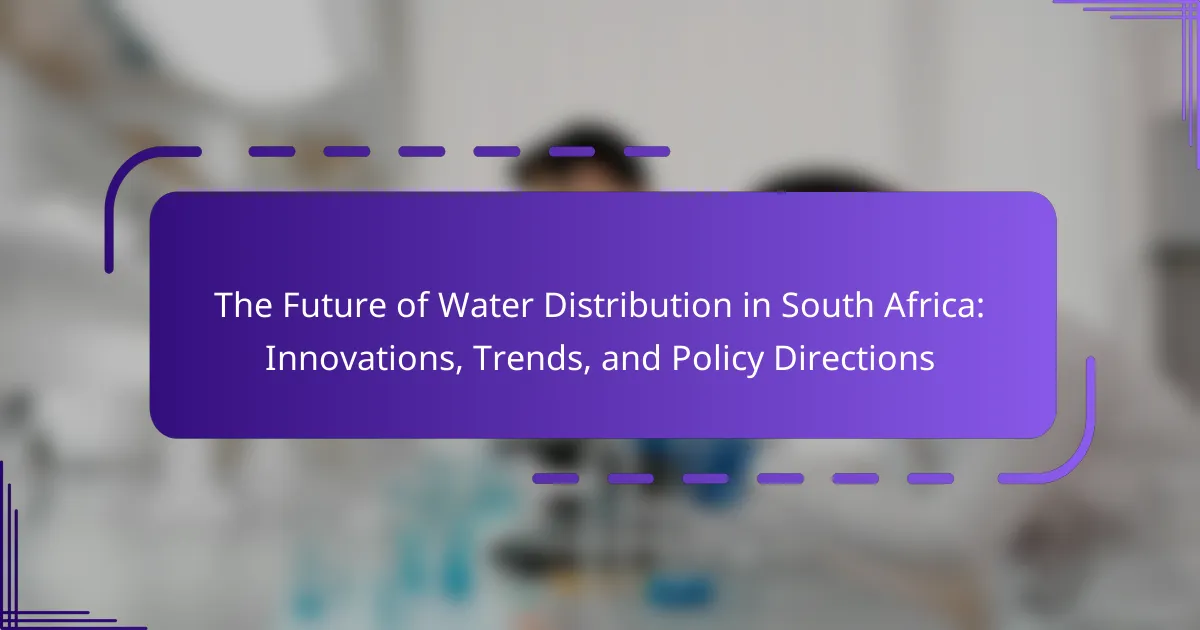
The Future of Water Distribution in South Africa: Innovations, Trends, and Policy Directions
The article focuses on the future of water distribution in South Africa, addressing critical challenges such as infrastructure deterioration, unequal access to clean water, and increasing water scarcity exacerbated by climate change. Key innovations discussed include smart water management systems, advanced metering infrastructure, and water recycling technologies, all aimed at enhancing efficiency and sustainability in […]
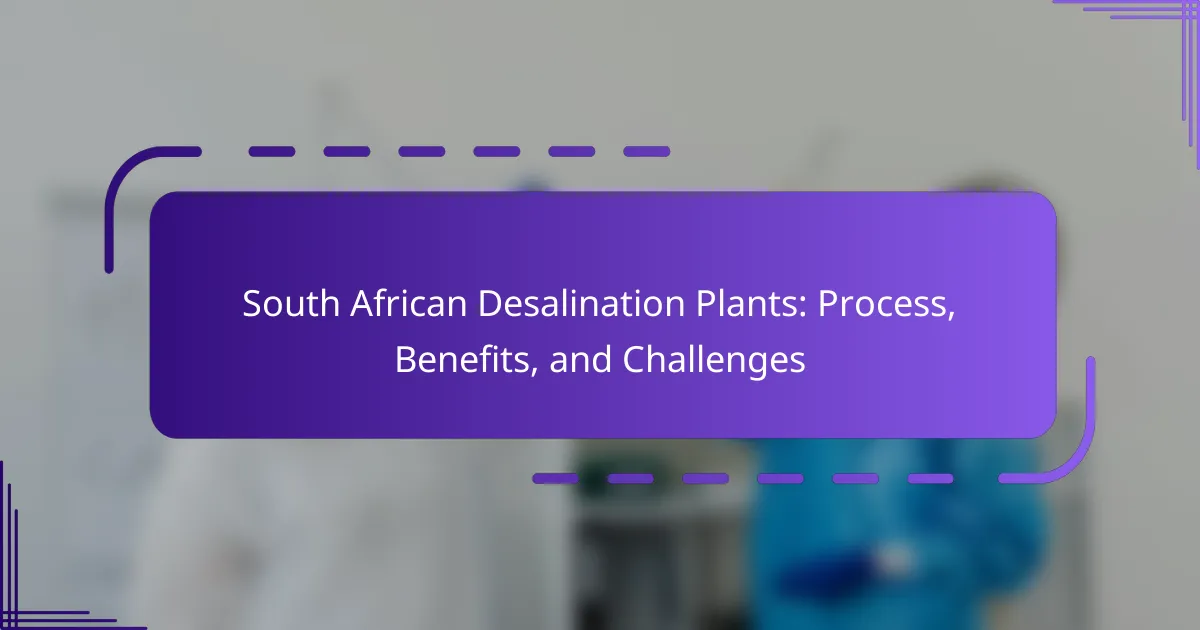
South African Desalination Plants: Process, Benefits, and Challenges
South African desalination plants are facilities designed to convert seawater into potable water, addressing the pressing issue of water scarcity in coastal regions. Utilizing technologies such as reverse osmosis, these plants are crucial for providing a reliable source of drinking water, particularly in urban areas like Cape Town and Durban. While they offer significant benefits, […]
